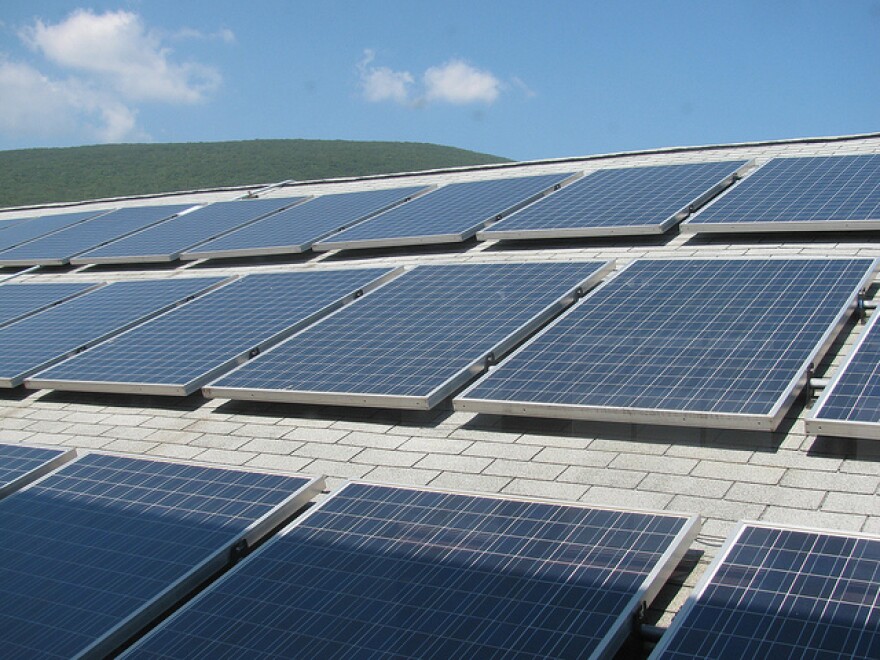North Carolina fell a bit in the most recent rankings of solar energy production across the nation but despite the dip, the solar landscape still looks strong, at least this year.
North Carolina developers launched thirty-three megawatts of new solar facilities last quarter, a fraction the amount even a small coal plant generates. The state slowed from building the second-most solar in the nation last year to fourth-most, according to the firm GTM Research.
“North Carolina’s market is very much in transition,” says solar analyst Corey Honeyman. “So, I think what’s really interesting about what happened there isn’t necessarily what came online, but how developers are responding to several different forces.”
One force is Duke Energy. The company plans to nearly double its solar footprint in the Carolinas by the end of next year, by buying 300 megawatts of solar from developers. Honeyman says there were a lot of applicants looking for the security of a large contract with Duke.
“We actually saw 2.5 gigawatts submitted by developers,” he says.
For fans of the movie Back to the Future, that’s enough power to send two DeLoreans back in time. (Great Scott!)
The other main forces are tax credits. The state offers a 35 percent credit for solar developers, but it expires at the end of next year. The federal government offers its own 30 percent credit, but that expires after 2016.
Developers are responding by preparing a rush of projects. The North Carolina Utilities Commmission has received well over a hundred applications since the start of the year.
So, the worry is less about a small dip right now, and more about what happens when the credits are set to expire.


